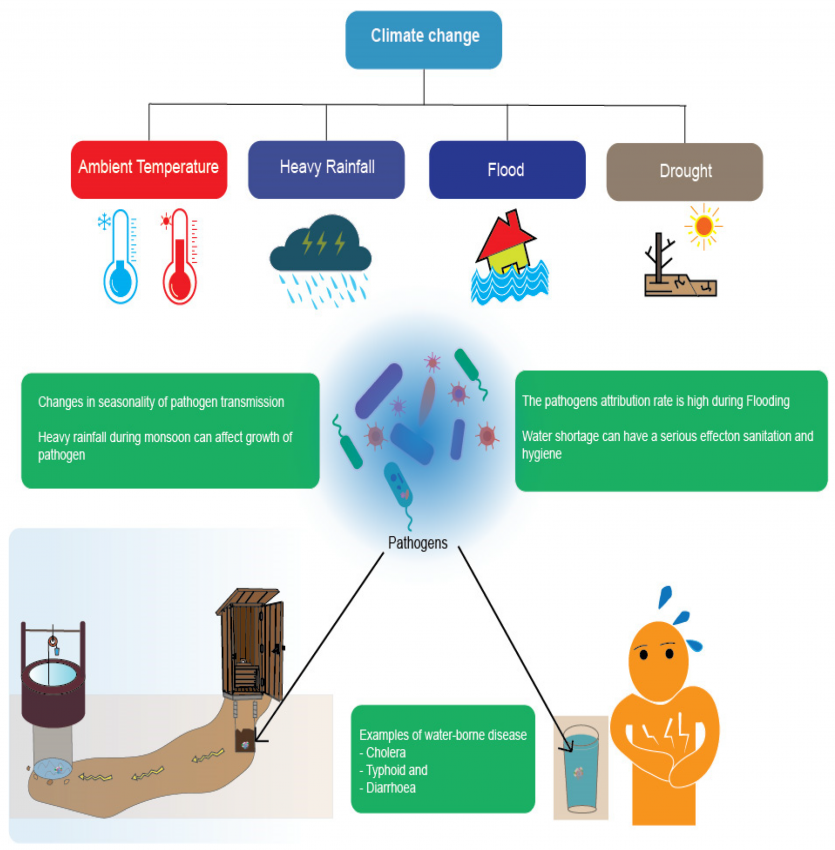페이지 정보
본문
The Intersection of Climate Change and Waterborne Illnesses
Recorded by ADEJUMOBI OMOLOLA EUNICE
DECEMEBER 15TH, 2023
Script
Climate change isn't just about rising temperatures and extreme weather events. It also has a direct impact on our water resources and the risks of waterborne illnesses. Here's a quick look at this important intersection and steps to safeguard our water supply: 1. Warmer Temperatures and Altered Precipitation Patterns: Climate change can lead to increased temperatures and altered precipitation patterns. This can cause prolonged droughts in some areas and more intense rainfall in others, which can affect water availability and quality. 2. Water Contamination: Rising temperatures can lead to the proliferation of harmful bacteria, viruses, and parasites in water sources. Additionally, heavy rainfall can wash contaminants into water bodies, further compromising water quality. 3. Increased Risk of Waterborne Diseases: Contaminated water sources can result in an increased risk of waterborne diseases, such as cholera, dysentery, and giardiasis. Vulnerable populations, including children and the elderly, are at greater risk. Steps to Safeguard Water Resources: Water Treatment: Ensure that your water supply is properly treated and tested for contaminants. Boiling water or using water purifiers can be essential in areas with questionable water quality. Water Conservation: Conserve water at home and in your community to help maintain a healthy balance in water sources, especially during droughts. Protect Watersheds: Support and engage in activities that protect natural watersheds, as they play a crucial role in maintaining water quality. Sustainable Land Use: Advocate for responsible land use practices to prevent runoff pollution, preserving the quality of water sources. Climate Action: Advocate for climate action to mitigate the impacts of climate change, including its effects on water resources. Understanding the connection between climate change and waterborne illnesses is crucial in addressing the challenges posed by a changing climate. By taking steps to safeguard our water resources, we can help protect public health and ensure access to safe, clean water for all, even in a warming world.
첨부파일
-
audio.mp3 (1.2M)
0회 다운로드 | DATE : 2023-12-15 16:55:40

